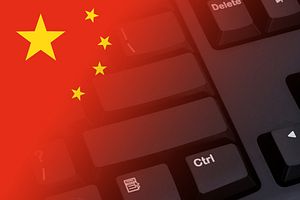When China hosted the first World Internet Conference last month, it used the event to introduce the country’s recently named Internet czar Lu Wei to the international community. It also unveiled Lu’s international agenda as he begins to expand his engagement towards foreign Internet regulators and companies after two years of what is being seen as a highly influential focus on domestic agencies and online service and information providers.
Lu’s ambitious international priorities, set out as national Internet sovereignty, international adoption of the Chinese regulatory model, and continued gatekeeping of international online companies, could mean rough waters ahead for international Internet information and service providers, as well as for Hong Kong citizens.
The first thing to know about Lu’s newly revealed international game plan is that he is definitely not to be seen as a loose cannon. His close association with President Xi Jinping at the conference signals that he is well received within the Party mainstream and that his foray into the international stage represents the official Party line. It will not be easy for the international community to side-step him.
The on-message participation of Chinese online giants such as Alibaba, Baidu and Tencent also suggests that the last two years have successfully gotten them on board with the Party’s vision of the future online world. The close alignment of government and corporate agendas has typified Chinese Internet development, particularly in the last five years, and creates a formidable bulwark against any foreign companies or regulators who would like to push China to play the online game on their terms.
The conference proceedings suggest there are three critical objectives to Lu’s international agenda.
National Sovereignty
First, Lu has clearly been tasked with establishing international recognition for China’s sovereignty over its own cyberspace. While most companies and governments have taken a “wait and see” approach to China’s strict domestic Internet controls, getting them to endorse China’s undisputed right to continue to regulate in a bubble will be an uphill battle.
For Hong Kong residents, this will be the most impactful agenda as it would further legitimize China’s sovereignty over Hong Kong Internet policy. This could only mean closer alignment of Hong Kong Internet policy to the central government’s protection of national interests and security and less tolerance for the exceptional online policies that continue to set Hong Kong Internet use apart from the rest of China.
Global Internet Regulation
Lu’s second challenge with the international community will be to take China’s national sovereignty global: building credence for the broader global adoption of a Chinese styled regulatory environment that Lu posits will make the Internet safe for users as well as for governments and corporate entities who are increasingly at risk of cyber-enhanced instability and terrorism.
To justify the need for this heightened global regulation, Lu and the Party are talking up China’s success at fending off threats of cyber-crime and terrorism with tight controls on access to online information and services, including regulators’ rights to block websites, censor content, and track users.
But even with Xi’s support, invocations of cyber-crime and terrorism are still met with skepticism within the international community. Crackdowns on online services and information to ward off threats like the “umbrella revolution” will hardly be considered life-threatening by the international community, which sees such activities as non-violent and constructive.
For Lu’s invocation of cyber-crime and terrorism to carry weight internationally, he will need more recognized documentary evidence of genuine threats; an area that the Party has historically been cagey about discussing openly. Until then, China’s heavy handed talk of cyber-crime and terrorism, while still likely to justify sovereignty over domestic policy, will not likely sway international players to adopt a Chinese regulatory model.
Gatekeeping Legitimacy
The third important objective implied by Lu during the conference is to bulwark his legitimate role as gatekeeper to China’s mouth-watering Internet market of over 630 million Internet users.
While Lu has held that international gatekeeping policies have effectively balanced mutual benefit with national security, many international commentators have expressed concerns that China’s gatekeeping practices have created an effective hedge against international completion.
Lu is taking a brave risk by engaging the international community head-on about this controversial subject. While selling Internet controls on the basis of national security has proved successful domestically, it will not be as easy convincing the international community that his restrictions are based on security and not anti-competition.
While China has historically responded to such accusations with stubborn entrenchment, I suspect that this open discussion of China’s gatekeeping role may signal some form of goodwill gestures in the future, including a relaxing of access restrictions on foreign information and service providers. Making such concessions would certainly help endear Lu to the international community, but how wide a door he’ll be able to offer remains to be seen.
More Work to be Done
Lu still has a lot of work ahead of him to build consensus on these three points. And while conference organizers made an abortive attempt to advance a declaration of universal accord with China’s vision at the World Internet Conference, the message from the international community is clearly that it still expects a lot more courtship.
John Jamison is a communication consultant based in Hong Kong.

































